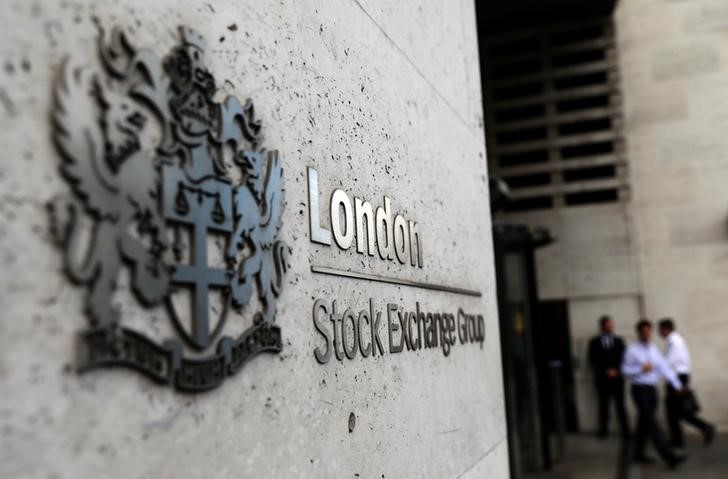By Lewis Krauskopf
NEW YORK (Reuters) - A gauge of world stocks fell on Tuesday and the euro dropped to its lowest level in about a month as investors pulled back from trades that have worked for most of 2017 in the face of continued political uncertainty around the globe.
The S&P 500 finished little changed as U.S. tech stocks rebounded from their sharpest single-day selloff in five weeks. MSCI's gauge of stocks across the globe shed 0.30 percent as shares in Asia and emerging markets declined.
North Korea has boosted defenses on its east coast, a South Korean lawmaker said, after the North said U.S. President Donald Trump had declared war.
The latest U.S.-North Korea development came as market participants were still reckoning with the German election, in which Chancellor Angela Merkel won a fourth term but her party was weakened by a surge in far-right support.
"The market has really been reacting to a combination of the North Korea news and its global impact and the election in Germany," said Rick Meckler, president of LibertyView Capital Management in Jersey City, New Jersey. "This has been a low-volatility market and this is really the only significant news we have had lately."
The dollar hit a month high after comments from Federal Reserve Chair Janet Yellen before it pared its gains. Yellen said the U.S. central bank needs to continue gradual rate hikes despite broad uncertainty about the path of inflation.
Chances of a hike at the Fed's December meeting rose to 78 percent from 72 percent late last week, according to the CME Group (NASDAQ:CME).
"Investors should be looking out for a December hike given we don’t know what happens to the Fed chair position next year," said Jack Ablin, chief investment officer at BMO Private Bank in Chicago. Yellen "probably wants to be able to, knowing anyone new in that role might not feel comfortable tightening the first month."
On Wall Street, the Dow Jones Industrial Average fell 11.77 points, or 0.05 percent, to 22,284.32, the S&P 500 gained 0.18 points, or 0.01 percent, to 2,496.84 and the Nasdaq Composite added 9.57 points, or 0.15 percent, to 6,380.16.
The tech sector gained 0.4 percent. Apple shares (NASDAQ:AAPL) rose 1.7 percent after four sessions of declines.
"We have gotten a little bit of a reversal from yesterday," said Paul Nolte, portfolio manager at Kingsview Asset Management in Chicago.
The pan-European FTSEurofirst 300 index rose 0.03 percent. Nestle shares climbed 1.8 percent as the world's largest packaged food company set a profit margin target for the first time.
In currencies, the euro fell as worry grew about political fallout in Germany and other euro zone countries.
Investors have shifted their focus to the euro zone's growing political divides in places such as Spain and Italy after the German election, said Joseph Trevisani, chief market strategist at WorldWide Markets in Woodcliff Lake, New Jersey.
"The European problems are structural and political and deep," Trevisani said.
The euro was down 0.51 percent to $1.1785.
The dollar index, which measures the greenback against a basket of currencies, rose 0.42 percent.
Benchmark 10-year notes last fell 5/32 in price to yield 2.2357 percent, from 2.22 percent late on Monday.
Oil prices fell after investors took profit following a rally to 26-month highs spurred largely by threats from Turkey to cut crude exports from Iraq's Kurdistan region.
U.S. crude fell 0.63 percent to $51.89 per barrel and Brent was last at $57.86, down 0.98 percent on the day.

Spot gold dropped 1.1 percent to $1,295.60 an ounce.
(Additional by Chuck Mikolajczak and Dion Rabouin in New York, Marc Jones in London; Editing by Chizu Nomiyama and Dan Grebler)